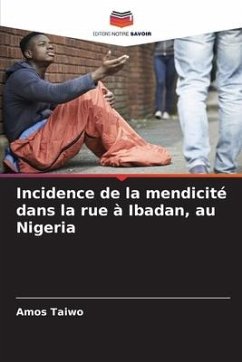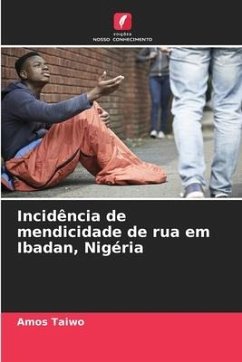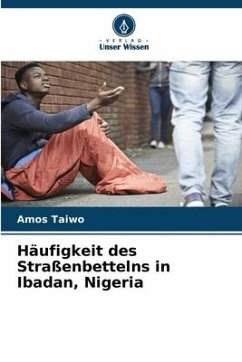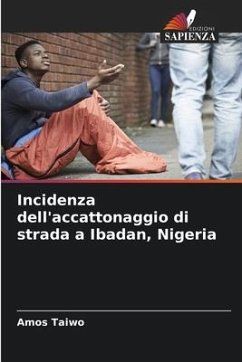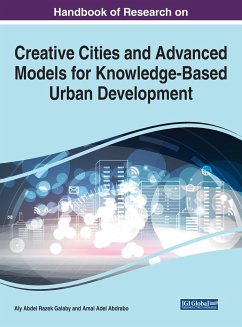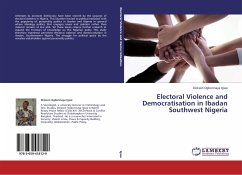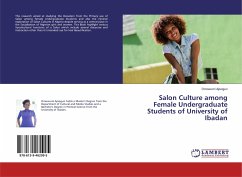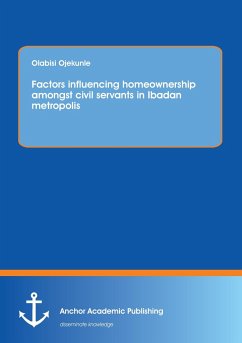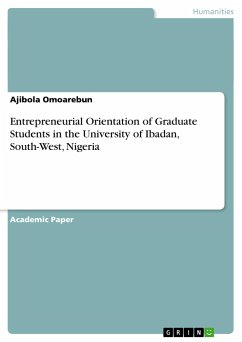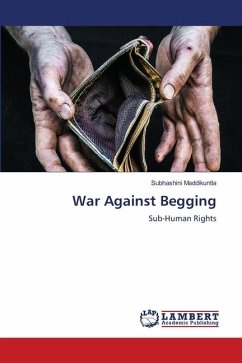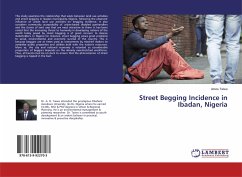
Street Begging Incidence in Ibadan, Nigeria
Versandkostenfrei!
Versandfertig in 6-10 Tagen
27,99 €
inkl. MwSt.

PAYBACK Punkte
14 °P sammeln!
This study examines the relationship that exists between land use activities and street begging in Ibadan municipality, Nigeria, following the observed influence of urban land use activities on begging incidence. It also considers community acceptability of urban-based disabled panhandlers and the choice of land uses that are most attractive to them. It has been noted that the increasing threat to humanity in developing nations of the world today posed by street begging is of great concern to diverse stakeholders. In Nigeria for instance, street begging poses great problems to social, environm...
This study examines the relationship that exists between land use activities and street begging in Ibadan municipality, Nigeria, following the observed influence of urban land use activities on begging incidence. It also considers community acceptability of urban-based disabled panhandlers and the choice of land uses that are most attractive to them. It has been noted that the increasing threat to humanity in developing nations of the world today posed by street begging is of great concern to diverse stakeholders. In Nigeria for instance, street begging poses great problems to social, environmental and economic survival of the country. This is because beggars are at times used as instruments by mischief makers to vandalise public properties and utilities built with the nation's resources. More so, the city and national economy is retarded as considerable proportion of beggars depends on the already overstretched workforce. Thus, all hands must be on deck to ensure that the phenomenon of street begging is nipped in the bud.



